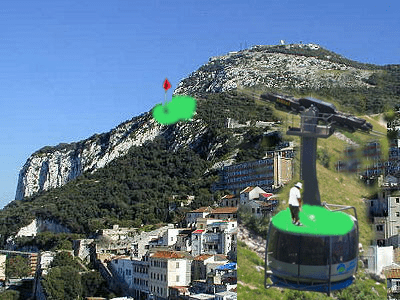OVER FISHING is being blamed for the surge in the number of jellyfish on Spanish beaches this summer.
Scientists have spotted mile-long blooms of the creatures along several stretches of the Mediterranean, with some areas hosting between 30 and 40 per square yard of sea.
Marine biologist Stefano Piraino, who has just returned from a flyover of 200 miles of Mediterranean coast to monitor growing jellyfish populations, said the main reason for the increase is the lack of fish in the sea.
Piraino said: “If we take the fish out of the oceans we leave more food in the environment and jellyfish are very smart, They can multiply very easily in a very short time; much faster than any vertebrate.”
Figures gathered by environmental concern group Greenpeace found Spain had pulled in three times more fish than they are supposed to, and this fishing had been predominantly funded through EU subsidies.
They are not the only group to have been alerted to the the problem of over fishing in Spanish waters. The EU recently slashed Spain’s fishing quota for 2013 by 800 tonnes, with threats of further deductions if its fishermen continue to offend.
The move follows one earlier in the year which saw the commission slap Spain with a sanction for over fishing mackerel, ordering the country to pay back a total 65,429 tonnes of the fish over the next 11 years.
Climate change
The usual breeds of jellyfish found in the Mediterranean do not sting, but rising sea temperatures has led to a number of stinging species travelling down into the waters from the Red Sea and the Suez Canal.
The result has been an rise in the number of beachgoers being treated for jellyfish stings, and it is a problem that could perpetuate towards the end of the summer as sea temperatures rise further.
Piraino said: “The research is likely to show climate change is also to blame for the increase in jellyfish, and the presence of stinging varieties. Many of the species we are observing have a faster growth rate with increased temperature.
“This includes the Rhopilema nomadica, which is considered one of the most invasive species on the continent.”
The increase in jellyfish has prompted the Spanish government to introduce jellyfish warning flags on some beaches, while the British foreign office issued a warning to travellers heading to some popular Spanish holiday resorts to beware of the higher presence of jellyfish in the sea.










and a majority of gullible Spanish people still blame Gibraltar for the reef to protect fish stocks. Rajoys little ruse worked on the uninformed !
Gibraltar deployed anti-jellyfish nets this summer, but fortunately, last year’s massive influx of Mauve Stingers (Pelagia noctiluca) was not repeated.
Spanish fishermen quite rightly have a reputation for over-fishing, not only in the EU but off the coasts of very poor African countries, where their plundering of one of the few sources of protein for children suffering from malnutrition amounts to piracy.
Given that Spain’s 4,000km+ coastline, fishing grounds off Canada and those of impoverished African countries are when combined, insufficient to keep pace with its ravenous demand for fish, how does Margallo expect that sending gunboats to escort La Linea’s and Algeciras’ EU-subsidised part-time fleet to (illegally) fish in British Gibraltar Territorial Waters satisfy his country’s greed?